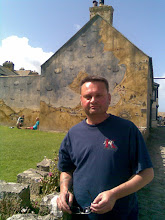There is an air of cautious optimism in South Africa as the Rainbow Nation prepares to write what is undoubtedly the most significant chapter of its short football history. A mammoth task lies ahead.
Recent years have brought ample disappointments, but Bafana Bafana have also shown, albeit in patches, that - given motivation and purpose - they can be a potent threat. And there can be no greater motivation than representing their country in a FIFA World Cup™ on home soil.
In 1996, four years after their readmission to international football, South Africa shot to prominence and stunned the African continent by claiming their maiden CAF Africa Cup of Nations trophy against Tunisia at Soccer City in Johannesburg. How ironic that, 16 years later, South Africa will return to the venue where they achieved this first major success, aiming to rewrite the script on an even bigger stage.
Their gallant performance at the FIFA Confederations Cup last June, when they lost narrowly to Brazil in the semi-finals and to Spain in the third place play-off, should certainly serve as a chilling reminder to their detractors that this team, when stretched to its potential, cannot be underestimated. That tournament witnessed several impressive performances strung together by the hosts, and ultimately it was only their inability to convert cleverly-tailored moves into goals that led to their demise.
The road to South AfricaSouth Africa, by virtue of their role as hosts, gained automatic qualification.
The star playersTalented midfield maestro Steven Pienaar is South Africa's prize assert. In the absence of the country's most successful striker, Benni McCarthy, who remains out of favour, Pienaar brings much-needed innovation and imagination to the side.
Since his arrival at Everton, Pienaar has reinvented himself and matured as an all-round player. While he continues to polarise opinion in his native country, no-one in South Africa disputes the confidence he exudes on the field and his ability to inject inspiration into the team's play. His performances during the FIFA Confederations Cup were yet another reminder that he will be key to any South African success in 2010.
Yet arguably just as vital to the Bafana Bafana cause are two players who have laboured tirelessly and effectively with little recognition: wingbacks Siboniso Gaxa and the enterprising Tsepho Masilela.
The coachNow in his second stint as a South Africa coach, Carlos Alberto Parreira's return was greeted with mixed feelings in South Africa, although the Brazilian's many supporters are adamant that he is the man to lead this side to the ‘Promised Land' in 2010. Parreira certainly has the pedigree, having led his native country to the beautiful game's ultimate prize at the 1994 FIFA World Cup USA. The extensively-travelled coach also brings a wealth of experience, which should prove vital in revitalising a South African side struggling with some significant pre-tournament problems. However, Parreira will be hoping to avoid the difficulties he endured during an inauspicious first spell as head coach, which witnessed him fail to lead South Africa beyond the first round at the 2008 Africa Cup of Nations.
Previous FIFA World CupsSouth Africa have failed to make it beyond the group stages in either of their two previous FIFA World Cup appearances. Clearly, this is a situation they will be desperate to remedy. Their first appearance was in France 1998, six years after they had been readmitted to the global football family. Despite a 3-0 drubbing to France in their opening game, they went on to put a decent show against Denmark and Saudi Arabia, drawing against both. Korea/Japan 2002 was expected to be an opportunity for Bafana Bafana to step up to the next level but, ultimately, they flattered to deceive, crashing out after the group stage despite beating Slovenia 1-0 for their first-ever FIFA World Cup win.
Record* This is South Africa's third appearance at the FIFA World Cup. Their first participation was at France 1998 and they also qualified for Korea/Japan 2002.
* Benni McCarthy scored the country's first goal at the FIFA World Cup in a 1-1 draw against Denmark on 18 June 1998.
* South Africa's incumbent captain, Aaron Mokoena remains the country's most capped player.
* South Africa hosted and won the CAF Africa Cup of Nations in 1996 at their first attempt, beating Tunisia 2-0 in Johannesburg's Soccer City. They went on to finish as runners-up at the following edition in 1998, losing to Egypt 2-0 in the final.
What they said"We are all aware that it is a huge honour to play in a World Cup on home soil; not many players have had such a privilege. We are also aware of the task that lies ahead. For us, the World Cup is our priority, it's our biggest goal. We need to represent our country with pride," Aaron Mokoena, South Africa captain.




